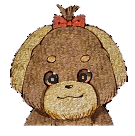 |
Now I'm going to read a letter from 身“Body” Bow-Wow!
|
|
Hello, everyone!!
How are you?
I am 身"Body", who was invited as a guest for the second performance.
Toshu-san, Le Ciel-chan, thank you for inviting me to 'Toshu's Kanji House' the other day.
I was happy to share a wonderful time.
Toshu's Kanji House is a very popular topic in the world of Kanji where we live.
Everyone is looking forward to seeing you, so please stay with us in the future. (^^♪
Let's get down to business.
In a letter from 人"Person," he mentioned the meaning of the word "Oracle Bone Script", but I would like to tell you a little bit about "Bronze Script ".
It was in the Western Zhou era (B.C., about 1000.) that I was born in this world as Bronze Script.
What is Bronze Script do you think? Toshu-san expressed it in gold on blue colored paper, so I think some people are wondering if it means "a gold character".
Bronze Script of 身"Body"
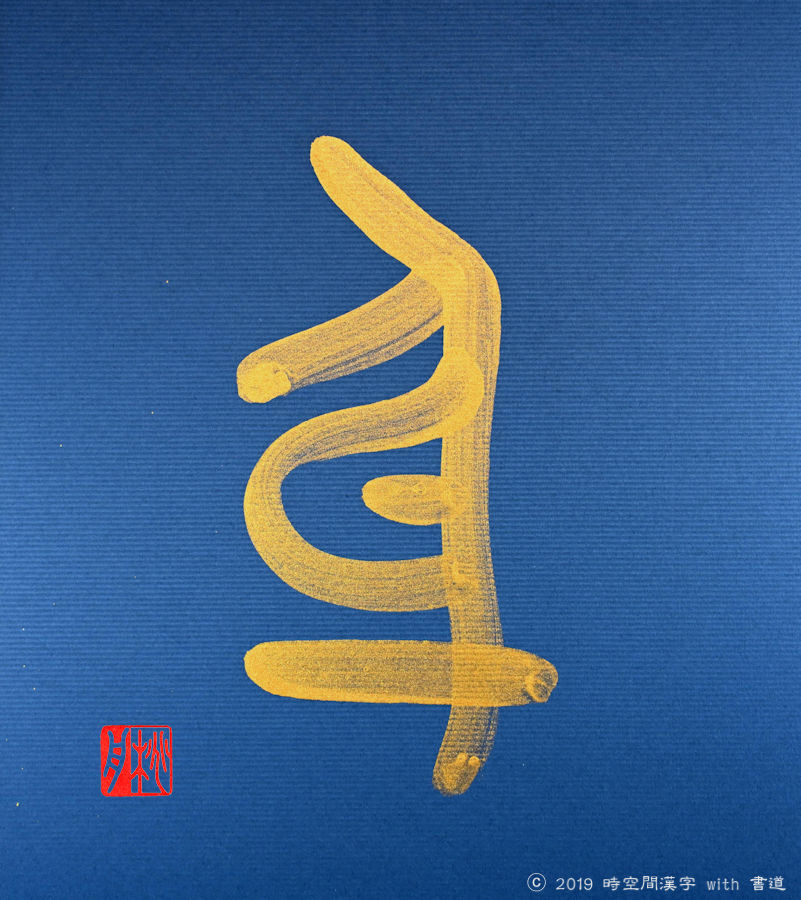
In fact, Bronze Script refers to characters cast into bronze ware (seidoki).
It's easy to understand if you think gold(金) of "Bronze Script" (金文) is gold(金) of metal(金属) (^ _ -) - ☆
Bronze Script was created in the Yin period (about 1300B.C.), the same period when the Chinese characters were used to communicate between the gods and kings, that is, to tell fortunes, but when they were created, they were mainly used for marks such as "Graphical Symbols" "Graphic Characters" and "Family Symbols" and the number of characters cast in them was small, so they were not well established as characters.
At that time, bronze ware was mainly used as weapons and ceremonial vessels (something used in rituals with God), but after I was born in the Western Zhou period, bronze ware came to be used not only as weapons and ceremonial vessels but also as political instruments.
And more characters were cast in.
The inscription on the bronze ware of Zhou, which established the era after the Yin Era, was not for gods and ancestral gods of the Yin Era, but for human beings such as other tribes and races, and was mainly written contract words.
The contents of the contract include such conditions as the obligation of tax payment and military service instead of granting territory. It is like the beginning of feudal system.
At that time, there were a lot of big shapes and thick lines, flexible shapes and many curved lines with decorative characters, and there were many inscriptions cast in bronze ware, which were about 500 characters long (Mao Gong-ding). As a result, the number of stages in which gold characters were active increased, and Kanji came into the glamorous golden days.
Mao Gong-ding (From the website of National Palace Museum)
Height: 53.8 cm, Diameter: 47.9 cm, Weight: 34.5 kg, inscription: approx. 500 characters
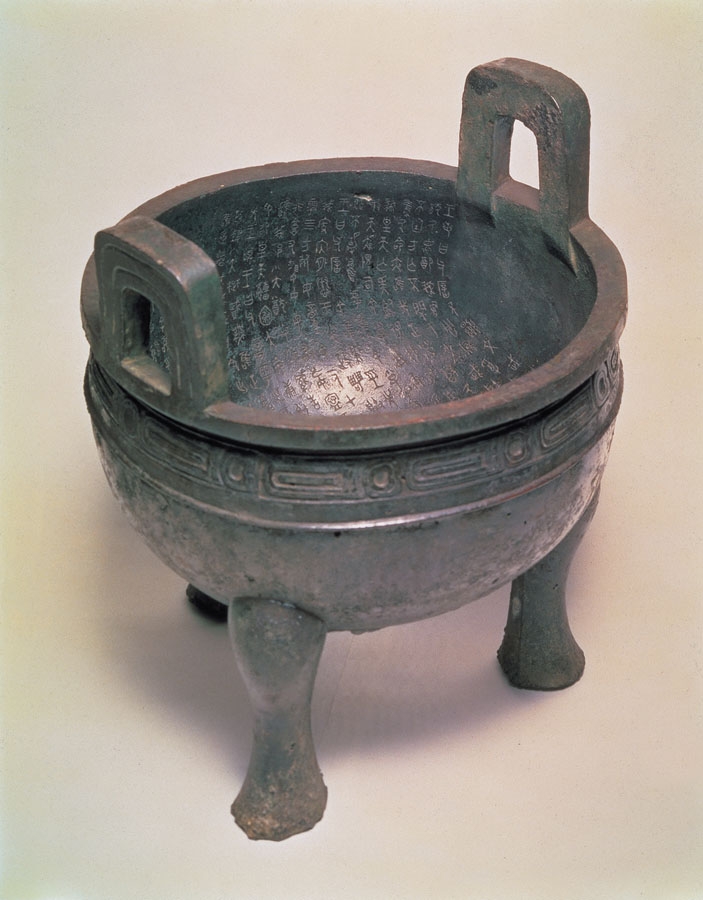
I have something to tell you at the end.
In fact, there was no such country as殷"Yin", and the people who lived there at that time called their capital 商"Sho.".
Why do you think it came to be called "Yin"?
In the "Historical Records", a Chinese history book, Yin is described as a symbol of evil, with some rulers oppressing the people and other tribes, and being entertained sumptuously as represented by the phrase酒池肉林"Shuchinikurin".
Under these circumstances, Zhou fought in concert with the tribes around him and destroyed the Yin Dynasty, which lasted for about 600 years.
In "Historical Records", this battle is described as "Battle of Makino (Yin-Zhou Revolution)" and it took only 1 day to decide the winner.
There's the word "If people win, they are regarded as a government army, but if they lose, they are regarded as a rebel army".
That's exactly right. The name Yin was given by the people who destroyed Yin, and it has such a terrible meaning.
The Kanji殷"Yin" in Bronze Script came from the act of slapping my belly, and there is no character "Yin" in Oracle Bone Script.
Don't you think it's awful to hit me!?
Maybe that's how much people at that time hated Yin.
Bronze Script of Yin
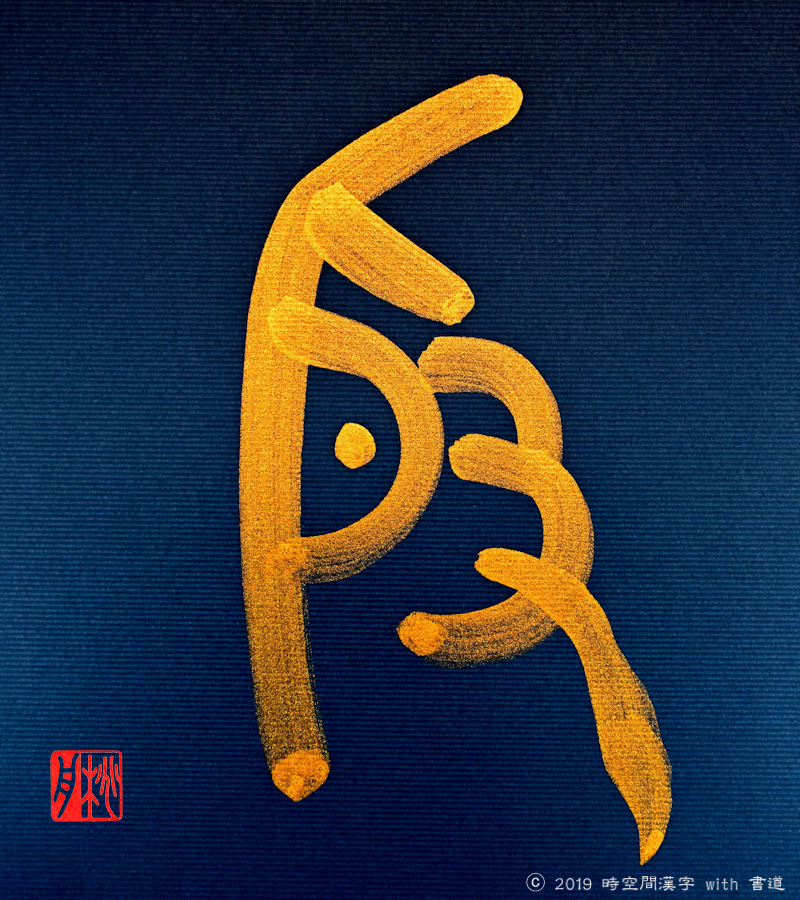
What I was talking about doesn't mean "Yin" was a bad country, but because the way of looking at things was different from each viewers and the history is sometimes rewritten for personal reasons.
There is a word 勧善懲悪 (Kanzenchoaku--encouraging good and punishing bad).
In this example, Yin means evil and Zhou means good, but I would like to explain that good and evil are different depending on people's positions and perspectives, so I would like to make this clear to those who have read "Toshu's Kanji House" by talking about this. As we live in a human society, I think there is no end to human suffering.
Even if you think of other people's actions as evil and try to advance your thoughts as good, you may not be able to proceed as you want.
This is because people think differently about "good and evil" and I don't think most of them get what they think. That is a human society.
There are many times when you feel frustrated if the things don't go well, but it's a waste for people who live in a finite amount of time to focus on the things that make them angry.
Time is money, and time never returns.
Instead of staying there forever, I want you to take the situation as positive as possible and move forward.
In the end, I might be excited too much, but I hope that my feelings will reach you and remind you of the meaning of "Ninjin ukegatashi imasudeni uku (It is very difficult to be born as a human, but it is great that we have already been born as a human )".
Have a nice day until we meet again!
To everyone who sees "Toshu's Kanji House"
From Bronze Script representative 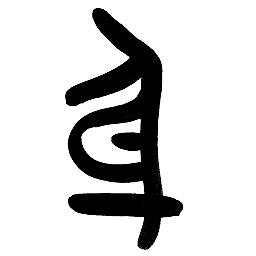 . .
|
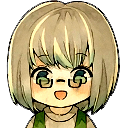 |
Leciel, thank you for reading the letter.
身"Body", thank you for your letter.
I studied a lot by your letter.
I'm moving forward holding 身"Body"'s words in my heart.
Everyone, please looking forward the next time as I will invite 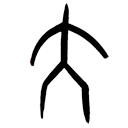 and and 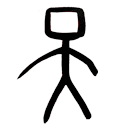 , who were introduced by 父"Father"!! , who were introduced by 父"Father"!!
|


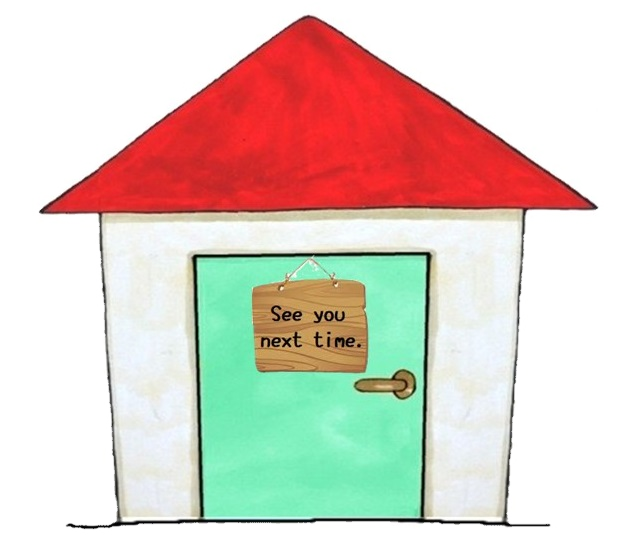



 .
. and
and  , who were introduced by 父"Father"!!
, who were introduced by 父"Father"!!